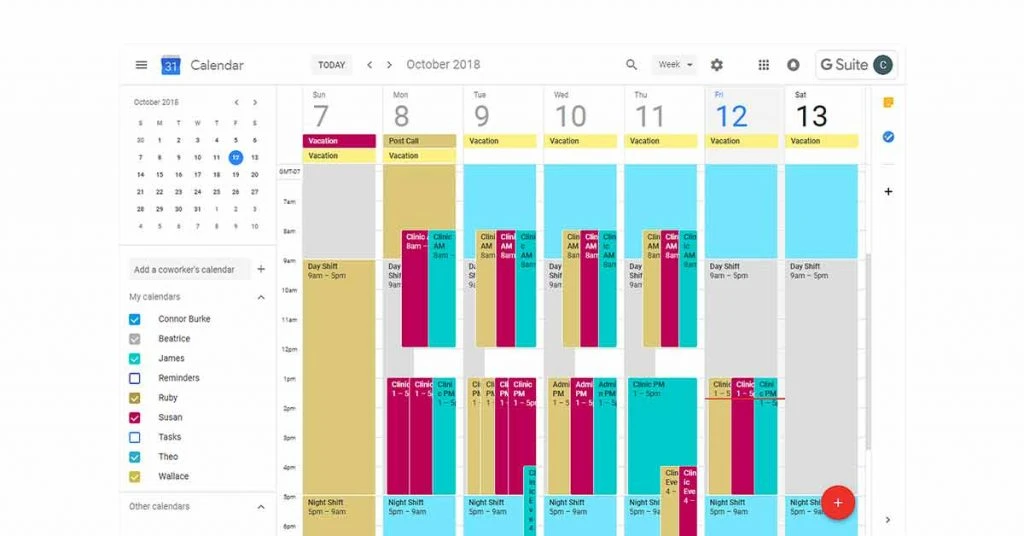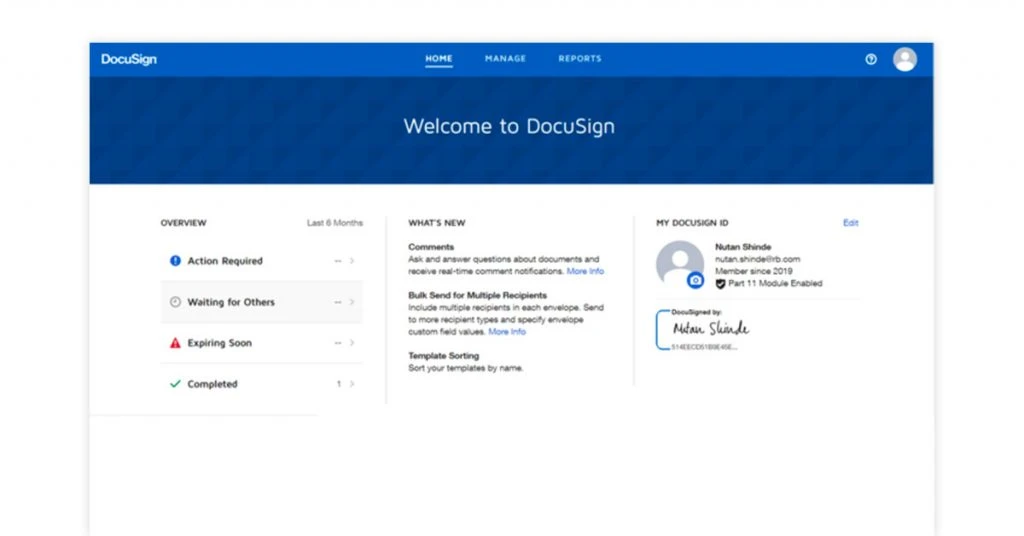Summary: Integrations could help in automating multiple business procedures and at the same time exploring the functionalities of Salesforce to the fullest. What are the top Salesforce integration options you can consider for this purpose? Discover about these integration choices in the article below.
Salesforce is undeniably one of the most prominent CRM solutions for managing and improving customer relationship management. The software can be easily integrated with other applications for collaborating, sharing documents, creating email campaigns, etc. However, toggling between the apps to extract data or share information becomes challenging for businesses.
With Salesforce integration, you can easily transfer data and manage critical business tasks from Salesforce without switching between different applications. There are plenty of applications that can be integrated with Salesforce to automate critical business tasks.
What is Salesforce?
Salesforce is one of the most popular customer relationship management software that helps businesses with sales, marketing, IT, and customer support tasks. From creating personalized marketing campaigns, recording customer’s details to managing the sales pipeline, Salesforce can help in simplifying sales, marketing, and customer service tasks.
However, Salesforce is not enough to handle all the tasks and therefore, people choose integrations to improve its functionalities. With Salesforce, users get over 2500 integrations to improve the workflows, share data between applications, and enhance the organization’s productivity.
These integrations can be used via native app integrations, APIs, third-party integrations. Learn more about how does the Salesforce integration work below.
How Does Salesforce Integration Work?

Salesforce integration works through a service, Mulesoft Composer. This service in Salesforce promotes connections across multiple platforms, channels, teams, etc., via API-led integration.
It offers multiple integration templates to make the integration procedure as smooth as possible. Here are some of the most common integration options to connect Salesforce with other systems.
- Native Integration: These integrations are supported by the software you are using and planning to integrate with Salesforce.
- API Integration: It works by establishing an interconnection between different applications through coding.
- Bi-Directional Integrations: Helps combine different data sets to work together as one.
- Third-Party Integrations: These integrations are not available in the software you are using but can be accessed through external platforms such as Workato.
Some other forms of integration include Batch Integration, AppExchange, Real-Time Mashups, Data Integration. Through integration with Salesforce, you can easily automate most of your manual tasks and procedures.
Top 10 Salesforce Integrations for Businesses
- LinkedIn: For business communication
- Slack: For team communication
- Dropbox: For file hosting and sharing
- MailChimp: For bulk email marketing
- HubSpot: For customer relationship management
- Google Workspace: For team collaboration
- Dell Boomi: For integrating multiple applications
- DocuSign: For creating electronic signatures
- Calendly: For appointment and meeting scheduling
- ActiveCampaign: For marketing automation
Some of the popular Salesforce integrations that you can consider for your business include:
LinkedIn: Best for Business Communication
LinkedIn is one of the most popular social networking sites to build professional networks. Through LinkedIn, users can connect with business professionals belonging to their industry, apply for jobs, etc. Further, you can also take skill tests on LinkedIn to polish your professional skills. Moreover, this integration can also help in publishing content on your social media pages.
How to Integrate LinkedIn with Salesforce?
You can integrate LinkedIn with Salesforce native integrations or API. Moreover, you can also do Salesforce third-party integration with apps like Zapier and Workato.
Through LinkedIn Sales Navigator for Salesforce, the sales team can seamlessly import accounts, leads record, or contact information directly into Salesforce.
With AppExchange integration, users can add all the sales navigator’s data directly into Salesforce like logging InMail messages and importing contacts. Through this integration, Sales Navigator can suggest leads based on the customer data available with this software to improve sales procedures.
Pricing: Free plan available | Price on request for premium plans
Slack: Best for Team Communication

Slack is a digital communication solution designed for professional communication. It lets businesses create multiple channels to work and collaborate with team members. Further, you can use Slack to share big data files and audio video conversations with team members. It offers almost 2000+ integrations, including the one for Salesforce.
How to Integrate Slack with Salesforce?
The Slack and Salesforce integration would help in improving the team collaboration and productivity within the organization.
You can either integrate Slack with Salesforce via native integration or third-party integration tools including Zapier, Workato, etc. This integration would help in searching Salesforce instances in Slack and share them with team members in Slack itself.
Moreover, team members can easily share messages between the Salesforce Chatter and Slack through this integration.
Pricing: Free plan available | Paid plan starts from INR 218 per month
Dropbox: Best for File Hosting and Sharing
Dropbox is a file hosting platform that lets users store and sync essential documents for easy collaboration within the organization. It enables organizations to securely store all photos and documents in a single storage. Further, Dropbox lets users share the files securely through a private link up to 100GB with its professional plan.
How to Integrate Dropbox with Salesforce?
This integration between Dropbox and Salesforce would help in securely sharing and syncing files between these two applications. Users can easily import files from their Dropbox account directly into the Salesforce.
For integration, you can either use Salesforce App Exchange or third-party integration tools like Zapier or Workato. With this integration, share the Dropbox content directly with customers from your Salesforce account, and collaborate with team members without leaving Salesforce.
Pricing: Free plan available | Paid plan starts from INR 978.94 per month for a single user.
MailChimp: Best for Bulk Email Marketing

MailChimp is an all-in-one email marketing and automation tool that helps users in automating marketing, emailing, and communication tasks. It comes with some interesting automation features like customer journey builder, pre-built templates, personalizing emails, optimizing content, etc.
Further, it also comes with multiple data analytical tools to study and analyze all sales and market data.
How to Integrate MailChimp with Salesforce?
There are three ways to connect your MailChimp and Salesforce account such as through App exchange, third party integration like Workato, Zapier, or Segment. It also offers native integrations or APIs for connecting MailChimp and Salesforce.
Through MailChimp-Salesforce integration, businesses will be able to sync and manage their marketing email lists, all the contacts information, and more.
With this integration, users can also segment emails lists directly in MailChimp through synching the leads data from Salesforce. Further, you can view campaign reports, create custom queries, etc.
Pricing: Free plan available | Paid plan starts from INR 770/ month for 500 contacts
HubSpot: Best for Customer Relationship Management
HubSpot is an easy-to-use CRM that helps businesses with tracking and analyzing their sales patterns, managing the entire sales pipeline, tracking emails, chatting live with customers, etc. Further, it can be used for improving the marketing strategy, increasing ROI, and coordinating with members on sales and marketing tasks.
How to Integrate HubSpot with Salesforce?
Salesforce bi-directional integration with HubSpot will automatically transfer data between the Salesforce and HubSpot and auto update the changes made in software in real time. Further, users can easily send leads information including email open rate, website activity, form submissions, and so on.
One of the foremost benefits of this bi-directional integration is that you can also send lead scores from HubSpot directly to Salesforce.
Pricing: Free plan not available | Paid plan under CRM suite starts from INR 130 424.8 per month
Google Workspace: Best for Team Collaboration

Google Workspace is a comprehensive suite of business applications and collaboration tools. It comprises multiple apps such as Gmail, Drive, Meet, Calendar, Chat, and so on. All these applications help businesses to connect, collaborate, and work with team members in real time.
How to Integrate Google Workspace with Salesforce?
To integrate your entire G suite with Salesforce, you can either use the native integration options or integrate via third-party tools like Zapier, Workato, or Automate.io.
With this integration, users can import all their contacts and leads data directly into their Salesforce account, and update records in multiple software without switching between the apps. It can also help you to directly attach your data files from your Gmail to Salesforce records.
Pricing: Free plan available | Paid plan starts from INR 125/user/month for business starter plan.
Dell Boomi: Best for Integrating Multiple Applications
Dell Boomi is an integration platform that helps businesses integrate multiple applications and sync business procedures. By integrating multiple applications, users can easily sync and transfer data and automate business processes and tasks.
With this Salesforce integration tool, users can use 125+ connectors to get connected with various business applications.
How to Integrate Dell Boomi with Salesforce?
To integrate Dell Bhoomi with Salesforce, you need to choose the Salesforce connector from the integration applications in Dell Bhoomi. Once done, you need to choose from the functions you want to perform after integration.
You can also create a new connection by entering the end-point URL and the company ID and password. Once done, you can easily exchange data between Dell Bhoomi and Salesforce.
Pricing: Price is available on request on Dell Bhoomi official website.
DocuSign: Best for Creating Electronic Signatures

DocuSign is a comprehensive suite of applications and integrations for automating the electronic signature procedure. With it, users can easily create, sign, and save e-signatures.
DocuSign is a trusted platform to send documents for e-signatures, real-time commenting on various agreements, and customize emails and web pages for branding. Further, users can manage their entire contracts cycle with this solution.
How to Integrate DocuSign with Salesforce?
Through Salesforce App Exchange, users can download DocuSign eSignature application for integration. Also, users can use the Salesforce integration directly in their DocuSign through native integration options.
Through this integration, users can complete their e-signature procedure directly from the Salesforce and create agreements through built-in templates. Further, you can digitize all your Salesforce documents through this integration.
Pricing: Free plan is available | Paid plan starts from INR 1,222.59 per month
Calendly: Best for Appointment and Meeting Scheduling
Calendly is a scheduling automation platform designed for business professionals who conduct meetings at scale. It works by letting users set their availability preferences within the solution and share the same with customers, clients, or even with family members for easy scheduling.
Further, it also lets people schedule meetings with businesses directly on the website and screen people’s profiles before scheduling. Calendly auto-schedules reminders and does rescheduling in a hassle-free manner.
How to Integrate Calendly with Salesforce?
To integrate Calendly with Salesforce, you can download the Salesforce integration package from Calendly integration page. Once your Salesforce account is authenticated, you can start automating the workflow and sync data between the two applications.
With this integration, whenever users schedule or cancel meetings, events will be automatically updated in their Salesforce account. Further, you can track Salesforce activities directly from the Calendly account through searching via multiple fields like campaign, time period, meeting type, etc.
Pricing: Free plan available | Paid plan starts from INR 651.94/ seat/month
ActiveCampaign: Best for Marketing Automation

ActiveCampaign is a comprehensive automation platform that offers features to automate key marketing and sales tasks. It comes with features like email marketing, CRM, sales, and marketing automation to help businesses improve their overall customer’s experience.
How to Integrate ActiveCampaign with Salesforce?
To integrate ActiveCampaign with Salesforce, you need to download ActiveCampaign Salesforce app from the app exchange. Once downloaded, you can login in with your ActiveCampaign account and use it in Salesforce.
This integration will also be visible in your ActiveCampaign application in the integration section. However, you can manage this account only through your Salesforce account.
Through ActiveCampaign integration with Salesforce, users can automatically add all the ActiveCampaign contacts directly in Salesforce and update the information of the leads in both software in real time. Further, it helps send a campaign that was created in ActiveCampaign to a contact in your Salesforce account.
Pricing: No free plan available | Pricing starts from INR 2,373.66 per month for the marketing automation plan.
FAQs
What are integration patterns in Salesforce?
There are four types of data integration patterns available in Salesforce including Remote Process Invocation – Request and Reply, UI Update depending on Data Changes, Remote Call In, and Batch Data Synchronization. These data integration patterns help users with real time data processing.
How many types of integration are there in Salesforce?
There are different Salesforce integrations, such as Data Integration, Business Logic Integration, and User Interface integration, Point-to-Point Integration, etc. You also get Hub-and-Spoke Integration and Enterprise Service Bus Integration (ESB) in Salesforce.
What is API integration in Salesforce?
API integration in Salesforce helps build a connection between multiple applications via coding to automate tasks and share data. There are different API integrations available in REST API, SOAP API, Metadata API, Apex REST API, Chatter REST API, and so on.
How to create an integration user in Salesforce?
To create an integration user in Salesforce, first you need to create a user profile, secondly, need to enable permissions, create a user profile, and validate the account through multi-factor authentication methods.
How to do integration in Salesforce using rest API?
To do integration in Salesforce through rest API, you need to send requests to Salesforce. The request will be inclusive of URI, HTTP method, Headers, and Request body.
How do I check integrations in Salesforce?
To check all the integrations in Salesforce, go to the “all apps” section, under it, you will find multiple integrations available. You can sort through the integration application by industry type or specific features to choose for your specific business requirements.
Varsha is an experienced content writer at Techjockey. She has been writing since 2021 and has covered several industries in her writing like fashion, technology, automobile, interior design, etc. Over the span of 1 year, she has written 100+ blogs focusing on security, finance, accounts, inventory, human resources,... Read more



























